Newsletter
Empowered
A Knowledge Exchange for the Global Energy Industry
2021–2026Empowered, produced by our energy lawyers, covers important trends and developments in the power sector (conventional, nuclear, renewable, including wind and solar, storage, and transmission) and the oil and gas sector (upstream, midstream, and liquefied natural gas, refining, and petrochemicals).
Issue 17

2040 EU Climate Target and Related EU Climate Policy Developments
In 2026, EU climate policy will pivot from target‑setting to implementation as the EU translates its 2040 net-90% target into actionable frameworks. Key developments expected in 2026 include the design of post-2030 climate packages, focusing on ETS and sectoral regulations, and the integration of carbon removals.

Delivering Nuclear Energy: Promise vs. Regulatory Reality, POWER
In an article for Power, partner Brooke Clark and associate Joseph Azeizat discuss nuclear power’s growing viability as a reliable, zero-carbon energy generation option and the Nuclear Regulatory Commission’s efforts to accelerate licensing and review processes to support broader deployment.

What a New York Climate Ruling Means for Companies Preparing for Emissions Reporting, Reuters
In an article for Reuters, partner Pam Wu examines a recent decision from a New York state court ordering the Department of Environmental Conservation to issue rules and regulations pursuant to the state’s Climate Leadership and Community Protection Act of 2019. This ruling addresses agency obligations stemming from climate regulations and sets a precedent for enforcement of statutory requirements in the climate policy arena.

What the Delay of the IMO’s Net-Zero Framework Means for Maritime Decarbonization, Reuters
In an article for Reuters, partner Levi McAllister discusses the recent delay by the International Maritime Organization of its vote on a much-anticipated Net-Zero Framework and what it means for decarbonization efforts in the maritime industry. The IMO voted during its October meeting to defer by one year a decision on the framework, an industrywide regulatory regime intended to require binding GHG standards and a global carbon pricing mechanism for shipping.
Issue 16

EU Clean Industrial Deal: A New Plan to Bring Together Climate Action and Competitiveness
The EU has adopted its Clean Industrial Deal to bring together climate action and competitiveness under one overarching growth strategy for EU industry. The EU remains committed to becoming a climate-neutral economy by 2050 through the intermediary 2040 target of 90% but recognizes that decarbonization must be well integrated with industrial, competition, economic, and trade goals, and shifts its focus accordingly.

Navigating Legal Risk and Compliance Across the Nuclear Energy Sector
From liability frameworks governing radiation exposure to evolving enforcement under the FCA, the nuclear energy industry must account for heightened scrutiny and shifting risk landscapes. Concurrently, developments in employee benefits, IP protections, and AI integration add layers of regulatory and contractual complexity. For entities involved in nuclear development, innovation and compliance must go hand in hand—requiring vigilance not only in legal structuring but also in operational practices.

Failure to Connect: Grid Challenges Persist as Demand Rises
As generative AI continues to advance and become more mainstream, so too do announcements that developers are investing in data centers and energy generation projects to help fuel their technological innovations. These circumstances present a tremendous opportunity for the energy industry, but it faces significant headwinds from a generation interconnection process that remains inefficient, slow, and costly.
Issue 15
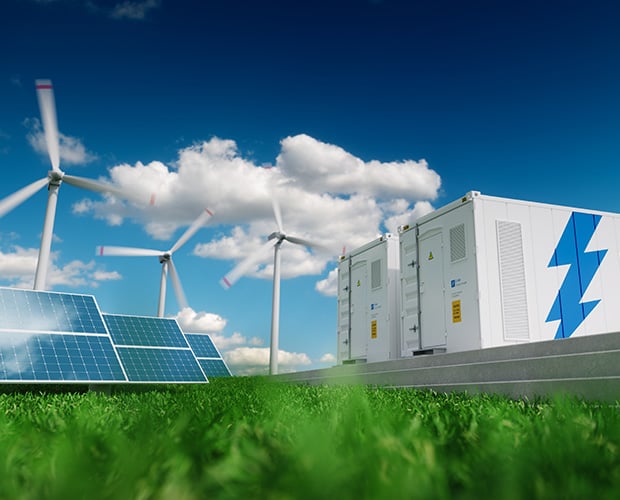
Energy Storage Rides a Wave of Growth: A Global Opportunity and Regulatory Roadmap for 2025
Despite policy and trade uncertainty, energy storage experienced record growth in 2024—fueled by falling battery prices, grid reliability needs, and incentives under the Inflation Reduction Act of 2022. Interest from utilities, developers, and investors continues to surge, even as new tariffs, evolving safety standards, and shifting tax policies introduce complexity. This report explores the legal, regulatory, and market forces shaping how storage projects are developed, financed, and deployed across the globe.
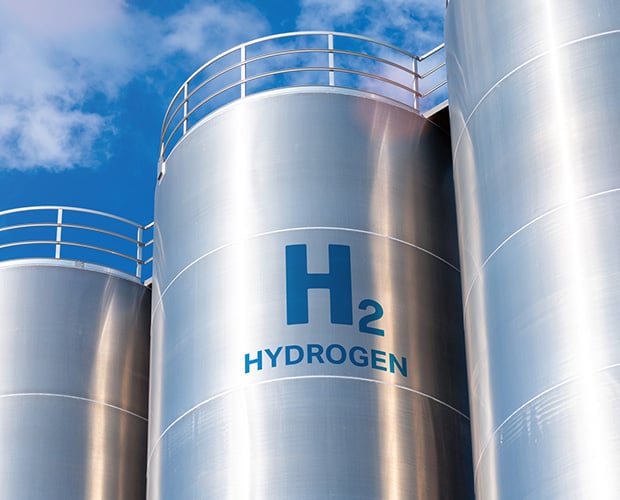
Treasury Department Releases Final Regulations Applicable to the Hydrogen Tax Credits
On January 3, 2025, the US Department of the Treasury released final Treasury regulations applicable to the hydrogen production tax credit under Section 45V and the investment tax credit for hydrogen production facilities under Section 48(a)(15) (together, the Hydrogen Tax Credits). The Hydrogen Tax Credits, passed as part of the Inflation Reduction Act, incentivize the production of low-carbon hydrogen.

Investment Opportunities and Regulatory Framework in Kazakhstan
The Republic of Kazakhstan, having vast reserves of natural resources and being located at the intersection of Europe and Asia, competes for investments in the region. As such, and as laid out in this article, the government consistently makes efforts to improve the investment climate.
Issue 14

States Amp Up Efforts to Impact Energy Policies
Three recent lawsuits, one at each level of the federal court system, illustrate the trend of states weighing in on energy policies, an uptick in the number of states willing to devote significant resources to these efforts in an attempt to protect the industries and priorities of their respective state economies, and an uncommon approach to impacting energy policy.

Why Haven’t FERC Cybersecurity Incentives Incentivized Cybersecurity Investments by Electric Utilities?
The Federal Energy Regulatory Commission issued Order No. 893 pursuant to the Infrastructure Investment and Jobs Act, which directed FERC to promulgate a rule to establish incentive-based rates for utilities. Based on the evidence to date, the Commission’s decision has not yet succeeded in accomplishing its primary objective: granting incentives that encourage heightened cybersecurity protections.
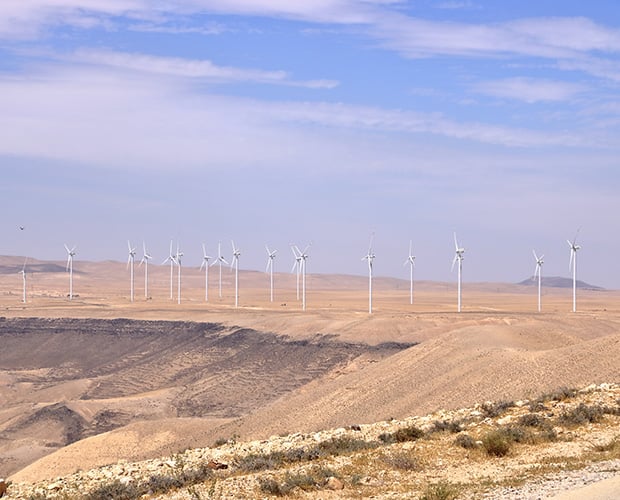
ESG Investments: The Middle Eastern and African Regulatory Perspective
The Middle East is witnessing a significant shift in its investment landscape. Environmental, social, and governance (ESG) considerations are no longer on the fringes but are increasingly becoming central to investment decisions.
Issue 13

Navigating the New Solar Trade Landscape
The Biden administration has announced changes to the tariff structure under Sections 201 and 301 of the Trade Act of 1974, aiming to bolster the US solar manufacturing sector and safeguard American jobs and businesses. Concurrently, the expiration of the 24-month moratorium on new tariffs for the importation of solar panels into the United States may create further instability in solar panel import pricing.

Energy Industry in the Government’s FCPA Crosshairs: Recent Enforcement and Policy Developments
The energy industry in general and the oil and gas industry in particular has been the target of at least 50 Foreign Corrupt Practices Act prosecutions over the years—more than any other industry. Most of the cases involved the use of third-party agents who interact with officials of state-owned enterprises in high-risk countries across the globe.

Reaching Net Zero: The Role of Nuclear Energy in Industrial Operations
In the race to mitigate climate change and achieve net-zero emissions, the industrial sector faces many challenges. One promising solution is the integration of nuclear energy into industrial operations. We explore the potential of nuclear energy to revolutionize industrial practices, focusing on the financial and regulatory considerations, opportunities, and risk mitigants.

Article 6 of the Paris Agreement and Its Impact on Investments in Clean Cookstoves
The “rulebook” for the technical and operational aspects of Article 6 of the Paris Agreement, which facilitates countries engaging in projects that reduce greenhouse gas emissions and selling the associated carbon credits to other nations, is expected to be finalized at COP29 in Baku, Azerbaijan this November.
Issue 12
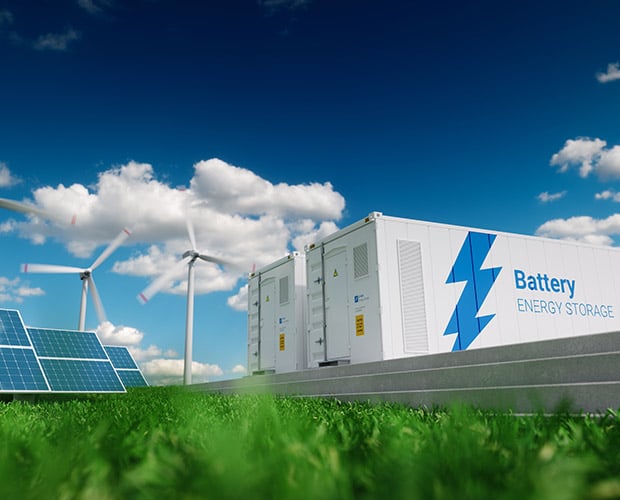
The Turning Tide of Energy Storage: A Global Opportunity and Regulatory Roadmap for 2024
After a few years of rising prices and supply chain disruptions, the energy storage industry is starting to see price declines and much-anticipated supply growth, thanks in large part to tax credits available via the Inflation Reduction Act of 2022 (IRA) and a drop in the price of lithium-ion battery packs. This report explores some recent key developments and trends that will help shape the 2024 energy storage market.

The ‘Three Pillars’ of EAC Use and the Proposed Regulations for Clean Hydrogen Tax Credit
The IRS and Treasury recently published proposed regulations setting out rules that would apply to the tax credits for US-situated clean hydrogen production facilities enacted under the IRA. Among the most sought-after guidance, the proposed regulations address the use of energy attribute certificates, such as renewable energy certificates, to support a project’s clean hydrogen emissions profile.

Q&A: From Shale to Scale: Key Market Trends and Issues Impacting Upstream Oil and Gas M&A
Following Morgan Lewis’s most recent Evening in Energy in Houston, energy industry co-leader Andrew Gallo spoke with the event’s keynote speaker Steve Almrud about the trends he is seeing in the traditional energy sector.

Kazakhstan and France Enter into Agreement for Cooperation in Combating Global Warming
Aimed at attracting direct foreign investment into renewable energy and sustainable development projects in Kazakhstan and combatting global warming, an agreement between the governments of Kazakhstan and France would create a legal framework for and apply to major projects in the sector that meet particular conditions, which projects will be able to derogate from certain provisions of Kazakhstan law.
Issue 11

Financing Increased Interconnection Costs in Light of Queue Reform, Reuters
In this article for Reuters, partners Pam Wu, Jane Kang, and Laura Neumeister Wright discuss the Federal Energy Regulatory Commission's order adopting reforms to the generator interconnection process in light of skyrocketing interest in renewable and clean energy project development.
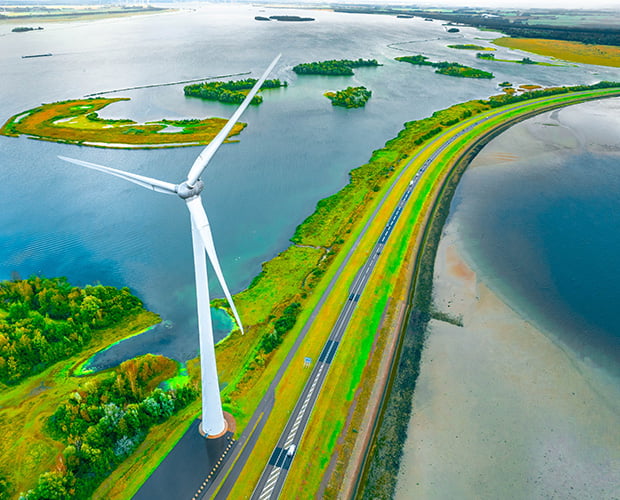
Treasury and IRS Publish Long-Awaited Guidance on Renewable Energy Investment Tax Credit
The offshore wind power industry in particular should be pleased by the proposed regulations’ approach to the scope of offshore and onshore power conditioning and transfer equipment eligible for the investment tax credit.

Expected DOE Funding Opportunity: Advancing Fueling Infrastructure for Heavy-Duty Transportation
The anticipated funding opportunity announcement is expected to accelerate the research, development, demonstration, and deployment of affordable clean-hydrogen technologies and marks further progression toward the Biden administration’s goal of carbon pollution-free electricity by 2035 and net-zero emissions by 2050.
Issue 10

Preparing for UAE COP 28: Gulf Countries’ Net-Zero and Climate Action Roadmaps
With the Middle East in the spotlight for UAE COP 28 at the end of 2023, the Gulf Cooperation Council nations have reaffirmed their full support for UAE COP 28 and emphasized its importance in tackling climate change, with several focusing on carbon-reduction initiatives and the diversification and expansion of their sustainable energy practices.

Renewable Energy Goals and Reliability Needs Fuel Community Solar, Energy Storage Programs
States are actively working to implement laws, policies, and regulations to promote the growth of in-state renewables while providing safe, equitable, and reliable energy to the electric grid. This has led to many more state policies, programs, and regulations to set community solar programs, energy storage goals and incentives, and utility resource planning initiatives in motion.

Nuclear Reactors Are a Clean Energy Solution for Civil Maritime, Bloomberg Law
Nuclear power has historically been used to power US military vessels but not civilian maritime. In this article for Bloomberg Law, Patrick Pennella, Alex Polonsky, and Jane Accomando explain how innovations in nuclear technology provide a safe and clean energy solution.
Issue 9

Building Energy Contracts: Go Beyond Boilerplate
The complex, heavily regulated, and often-volatile environment within which energy companies must operate can magnify the importance of contractual arrangements, and the severity of repercussions when those arrangements do not function as desired. When building energy contracts, whether repeat form agreements, employment agreements, or one-off deals or mergers, our energy litigation lawyers would not recommend blindly using boilerplate provisions.

Net-Zero Commitments to Carbon Offsets: Current Trends in Corporate Sustainability
Increased pressure from shareholders, consumers, and employees has prompted many companies worldwide to evaluate their impact on the environment and take steps to reduce their carbon emissions.
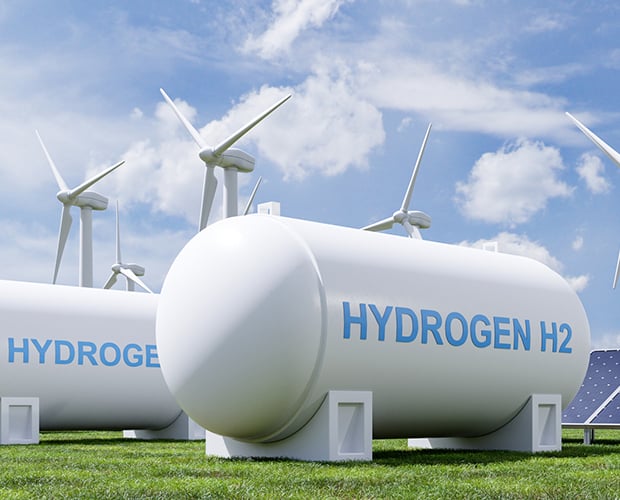
The State of EU and UK Hydrogen Regulations
The need to diversify our sources of energy has become more and more compelling, aggravated by the current geopolitical context and climate change. Many countries have expressed their willingness to use hydrogen as part of a greener energy mix and see it as a staple of their energy transition efforts. In this piece, we will address where the European Union and the United Kingdom regulators are at in the sector.
Issue 8

The Road to Scaling Zero-Emission Vehicles
Since the Biden administration released the US National Blueprint for Transportation Decarbonization (Blueprint) on January 10, 2023, the administration has continued to invest significantly in the development of electric vehicles (EVs), hydrogen fuel cell vehicles, and the much-needed charging infrastructure.
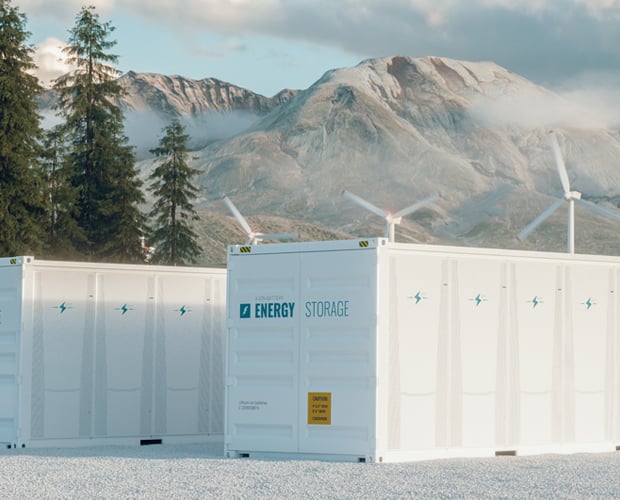
The Rise of Energy Storage
Energy storage: the technology that will cash the checks written by the renewable energy industry. Energy storage can transform intermittent clean energy—primarily derived from wind and solar—into a reliable source of 24/7 generation. Morgan Lewis lawyers lay out some important trends in the 2023 energy storage market.
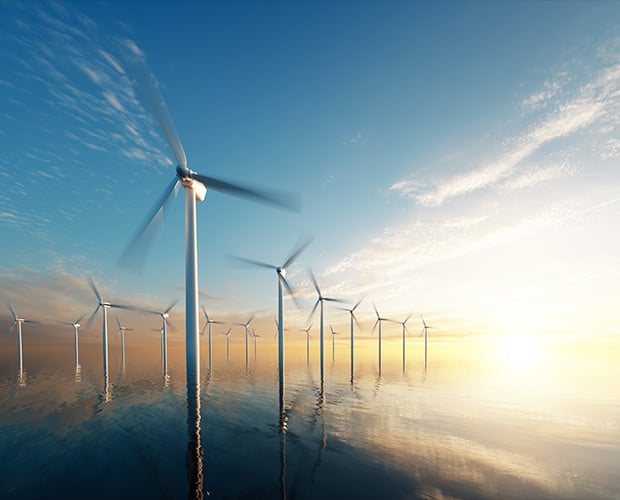
Smoother Sailing to 30 GW by 2030: Proposed Enhancements to Offshore Wind Permitting Process
Leaders across the United States are prioritizing offshore wind development as an essential component of any strategy to address climate change, since the ocean is one of the few available areas that can provide enough renewable energy capacity to meet the United States’ zero-carbon electricity goals by 2050.

Regulating the Power of the Sun: Fusion Energy Breakeven Is a Breakthrough
Fusion energy is hot. And not just literally. The scientific community is abuzz about a recent announcement that Lawrence Livermore National Laboratory scientists achieved the first energy breakeven from a fusion reaction. This scientific breakthrough—the first time that a fusion reaction produced more energy than was used to start the reaction—means that we are one step closer to being able to harness the power of the stars to generate carbon-free electricity with far less radioactive waste than nuclear fission.
Issue 7
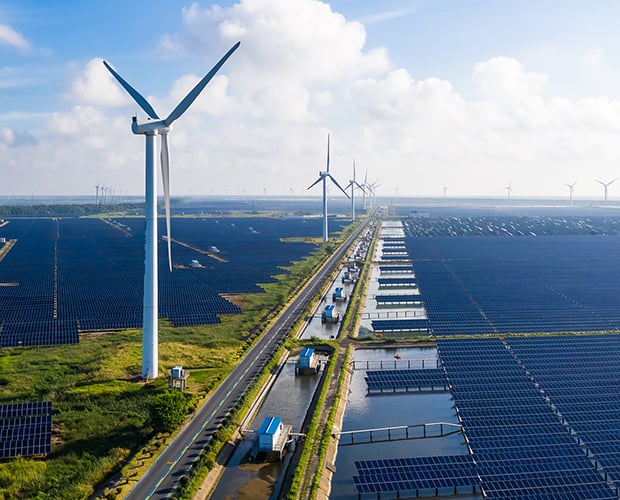
Renewable Power in Türkiye – A Brief Overview
Türkiye’s renewable energy market has experienced substantial growth with renewable electricity generation nearly tripling in the last decade. Turkish Electricity Transmission Co. (TEİAŞ) General Directorate data shows that as of September 2022, energy from renewable energy sources (i.e., biomass, geothermal, hydro, solar, and wind) accounted for almost 55% of the installed power in Türkiye. The Turkish government has made it a strategic priority to promote the expansion of renewable energy resources.
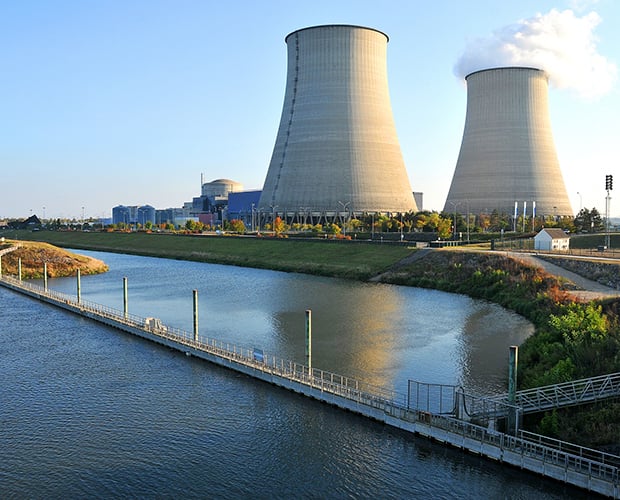
Nuclear: An Investible ESG Asset
As the world responds to rapid changes across economic, social, environmental, geopolitical, and COVID-19 landscapes, many investors and companies are increasingly incorporating ESG—environmental, social, and governance—considerations into their business and investment decisions. Although commercial nuclear power plants have played an important role in the global economy since the Eisenhower administration’s “Atoms for Peace” initiative, the acknowledgement of nuclear energy as an investible asset is a fairly recent shift.

TSA Takes Steps to Protect Rail Cybersecurity
As cyberattack threats rise around the globe, malicious actors are increasingly setting their sights on exploiting critical infrastructure. The Transportation Security Administration (TSA), tasked with safeguarding land-based transportation modes such as pipelines, mass transit, and freight rail, is the latest US agency to develop mandatory cybersecurity regulations.

Cross-Border Energy Projects in Times of Crisis: Is EU State Aid a Solution for Green Transition?
The European Union remains committed to its Green Deal. Despite all odds, geopolitical concerns and the energy crisis may actually accelerate the EU green transition and trigger a reduction of fossil fuel imports, with the additional objective of securing the European Union’s energy independence. The share of renewables in the EU electricity mix is expected to grow from 37% in 2021 to 69% in 2030.
Issue 6

The Interplay Between ESG Investing and ERISA's Fiduciary Duties
Environmental, social, and governance (ESG) investing—especially the “E”—is an increasingly hot topic for investors, but it presents unique legal issues for retirement plan decisionmakers who have strict fiduciary duties to retirement plans and their participants. There are certain considerations for US retirement plans, especially regarding the interplay between the primary applicable US law, ERISA, and environmental-focused investing.

How ESG Reporting Requirements Could Shape Green Hydrogen Development
Over the last few years, the conversation surrounding greenhouse gas emissions (GHG) and decarbonization goals has become louder and louder. In April 2021 US President Joseph Biden announced a goal of reducing US GHG emissions by 50-52% by 2030, and the COP-26 summit held in November 2021 saw many other world leaders setting similarly ambitious goals for GHG emissions reductions and decarbonization. One energy source with the potential to help achieve these goals is green hydrogen.
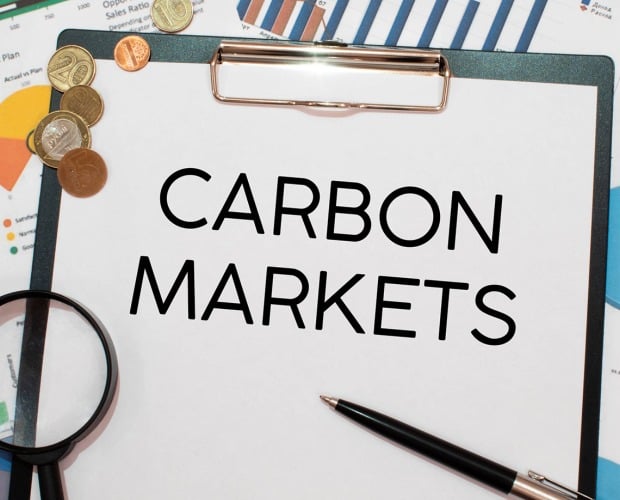
Recent Developments in Voluntary Carbon Markets
With the increasing focus on transitioning to clean energy and a low-carbon economy, companies continue to turn to the voluntary carbon markets, purchasing carbon credits to help decarbonize their operations and achieve their emission reduction goals. However, several factors—the need for additional transparency, standardization, and accountability—may keep purchasers of carbon credits from having full confidence in the voluntary carbon markets, despite their recent growth. In 2021, the voluntary carbon markets quadrupled from 2020 to approximately $2 billion in market value.
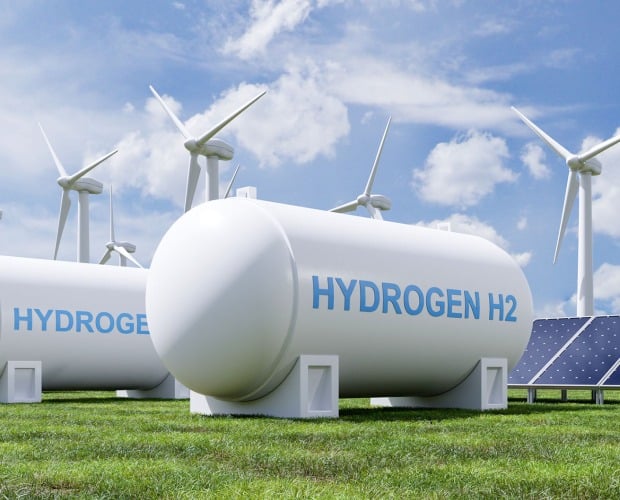
United States Gets Serious About Producing Hydrogen at Scale
The US government took important steps this year to promote a growing hydrogen economy. On August 16, 2022, shortly after the US Department of Energy (DOE) announced a game-changing program to fund $8 billion for the development of regional hydrogen hubs in accordance with the provisions of the Infrastructure Investment and Jobs Act, President Joseph Biden signed the Inflation Reduction Act (IRA) into law, funding approximately $369 billion in new renewable and green energy projects across the country.
Issue 5

Energy Transitions: Re-Powering Retired Coal Sites with Carbon-Free Nuclear Generation
Now, more than ever, energy industry participants are seeking creative pathways to minimize the cost and schedule for deployments of carbon-free electric generation facilities. Enter the latest trend: coal-to-nuclear transitions.

A Snapshot of Renewable Energy Regulation in Azerbaijan
Azerbaijan, a historic exporter of oil and gas, is now on a path toward developing its renewable energy resources. With incentivizing regulations in place and a high potential for renewables, Azerbaijan appears to be focused on increasing its attractiveness as a destination for international investors. Azerbaijan has announced a number of ambitious pilot projects in renewable energy with major international investors.

The Importance of Renewables for Electric Vehicle Charging
As vehicles continue to demand more energy, it will be increasingly important to ensure that more vehicles are powered by renewable resources. The automobile industry is undergoing a dramatic shift toward electrification with more widespread adoption of electric vehicles (EVs).
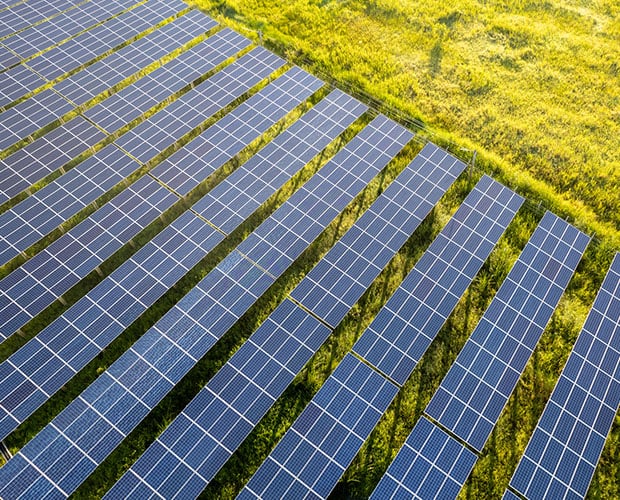
Solar's Uncertain Future: Auxin Solar Petition Disrupts Industry
The Biden-Harris administration and US Department of Commerce (Commerce) are investigating solar cell parts from four Southeast Asian countries—Cambodia, Malaysia, Thailand, and Vietnam—to determine if the manufacturers are using parts made in China. If those countries are using solar parts made in China without significantly altering them, it signifies that those companies are circumventing antidumping duty (AD) and countervailing duty (CVD) tariffs.

Carbon Capture, Usage, and Storage: UK Regulatory Regime
The Energy Security Bill, announced in the Queen’s Speech 2022, aims to facilitate the United Kingdom’s transition to cheaper, cleaner, and more secure energy. As part of the legislative agenda for the remainder of the current Parliament, the bill will legislate state-of-the-art business models for carbon capture, usage, and storage (CCUS) projects.
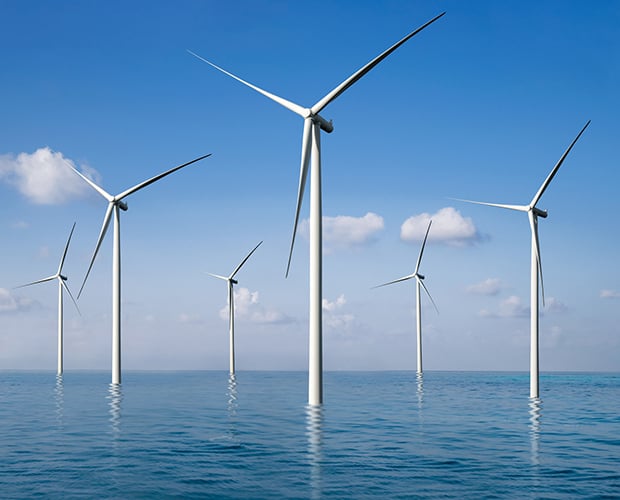
Offshore Wind Update: Checks Are in the Mail
As many industry observers predicted (and hoped), 2022 has been a breakout year for the nascent US offshore wind industry. Spurred by the Biden-Harris administration’s goals of 30 gigawatts of offshore wind by 2030 and net-zero US electricity production by 2035, years of anticipation, planning, and preliminary development have finally culminated in billions of dollars of investment commitments—and “checks in the mail”—from global energy powerhouses, even in the face of increasing global economic headwinds.
Issue 4

Mitigating Energy Sector Risks Through Cyberinsurance
Energy companies in the power and oil and gas sectors are leading targets of cyberattacks, as threats to critical infrastructure systems continue to rise. A 2021 report by a third-party cyberrisk company found that a quarter of the energy sector is “highly susceptible” to a ransomware attack, and almost half of the energy sector has a “critical vulnerability” due to out-of-date systems.
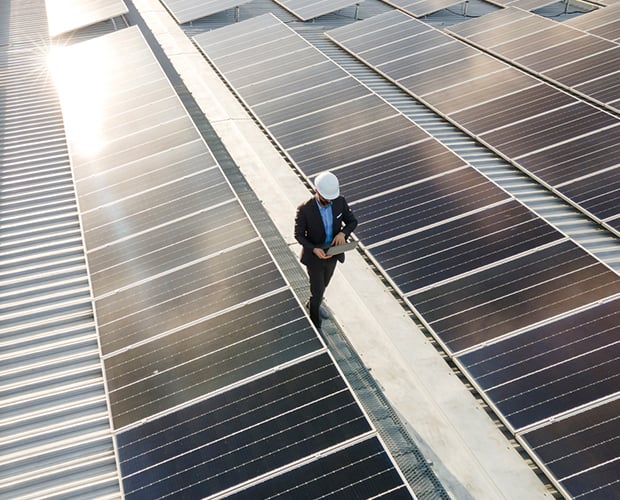
FERC Turns Its Enforcement Efforts Toward Infrastructure Development
Through its more recent enforcement actions, the Federal Energy Regulatory Commission has sent a clear message to the energy industry, with its Office of Enforcement shifting enforcement efforts to policing infrastructure development and ensuring compliance with authorizations granted in certificate orders.

Energy Transition: Trends in Kazakhstan and the African Continent
Key topics discussed at COP26 were energy transitions in emerging markets and how richer countries would support poorer nations. Energy transition is particularly challenging in developing economies when they derive most of their revenues from fossil resources and have to balance economic growth with aiming for “net zero.” Kazakhstan, however, has vast potential in the renewable energy sector and could affect financing and regulatory trends on the African continent.
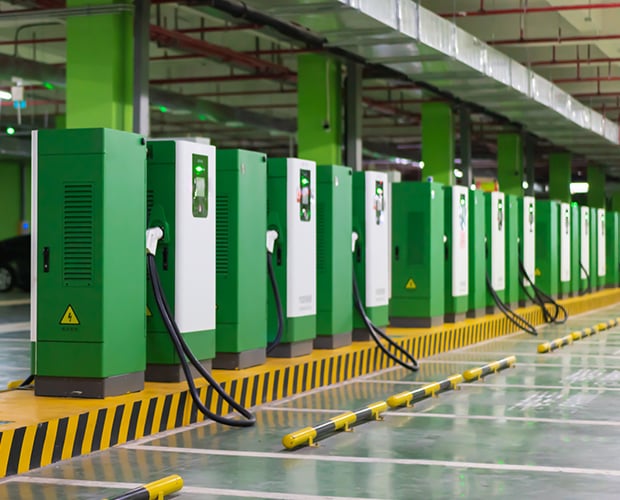
The Infrastructure Act’s Impact on the Energy and Technology Industries
The Infrastructure Investment and Jobs Act is slated to provide unprecedented levels of federal spending toward physical infrastructure, allocating $1.2 trillion not only for funding roads, bridges, and rails, but also for funding projects like high-speed internet, electric grid modernization, and an electric vehicle charging station network.

Understanding Regulatory and Environmental Challenges to Offshore Energy Projects
As renewable energy grows in popularity, offshore power generation has been bolstered by recent federal and state initiatives that support the development and integration of offshore renewables to achieve emission reduction goals. However, developing these projects requires careful planning to navigate regulatory, environmental, and stakeholder hurdles that potentially lead to long and costly delays.
Issue 3

Energy Companies Must Prepare Now for New Board Diversity Regulations
The composition of the average company’s board of directors is more varied and unique than ever before. Nonetheless, as a whole, the energy sector lags behind the average publicly traded company in terms of increasing the number of women and underrepresented minorities as board members. A series of new US state legislation and rules promulgated by stock exchanges present energy companies with the challenge of how to comply with board diversity legislation. But, more importantly, it also presents energy companies with opportunities to take a leadership role in the composition of their boards, effectuate their pro-diversity policies, and communicate with shareholders regarding a prescient topic for which they are highly interested.

Emergency Cybersecurity Regulations in the Pipeline Industry: Unique Challenges and Opportunities Ahead
Cybersecurity threats to critical infrastructure systems are nothing new. But events over the last few years have been notable due to the seemingly increased frequency of successful attacks and the way those attacks have been vaulted into the national public discourse. In particular, the media attention devoted to these attacks has been unprecedented and is raising the specter of public health and safety risks caused by shadowy cyberthreats.

Nigeria Overhauls Its Oil and Gas Laws with Petroleum Industry Act
With more than 300 sections across five chapters and an additional eight schedules, Nigeria’s Petroleum Industry Act (the PIA), which was passed on August 16, 2021, repeals all previous laws related to oil and gas. This article provides a high-level overview of certain key changes brought about by the PIA.
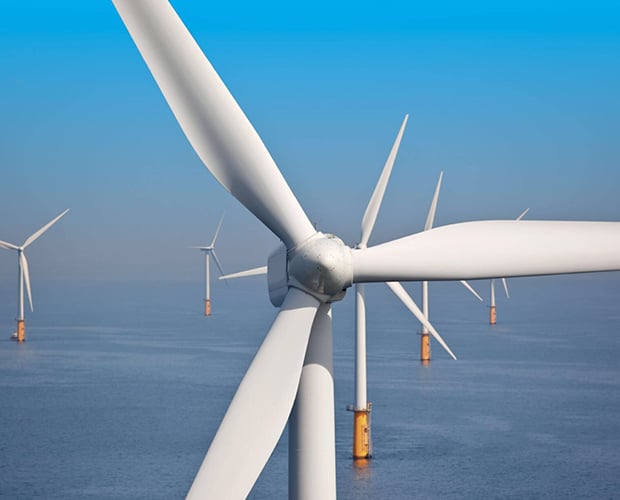
Jones Act Compliance Strategies for US Offshore Wind Construction
As renewable energy continues to comprise a larger share of the US power mix, offshore wind remains the next frontier of the US green energy boom. Today, the US hosts only one operational commercial offshore wind farm, the five-turbine, 30-MW Block Island Wind Farm. However, a robust pipeline of projects is under development with leases secured, development well underway, and construction targeted for 2022–2024. By some observers’ analysis, the Bureau of Ocean Energy Management (BOEM, a branch of the US Department of the Interior) is currently reviewing the construction and operation plans of nine more projects, is expected to complete another six by 2025, and has announced plans to hold lease auctions for up to seven new sites by 2025. The Biden administration has established a goal of 30 GW of US-based offshore wind power by 2030, and issued an executive order targeted a goal of permitting at least 25 GW by 2025.

Transportation Industry Looks to Hit Net Zero Emissions
Governments around the world have been committing recently to the greening of the transportation industry with a variety of net zero emission targets, funding proposals, and potential penalties and taxes.
Issue 2

After the Storm: Maximizing Insurance Assets to Recover from Natural Disasters
Severe weather events cause catastrophic damage and disruptions to countless individuals and businesses each year in the United States and around the world. The energy industry is particularly vulnerable, including entities in the exploration, development, transportation, generation, and/or distribution business. Leveraging all available insurance coverage and pursuing claims are crucial first steps in recovery.
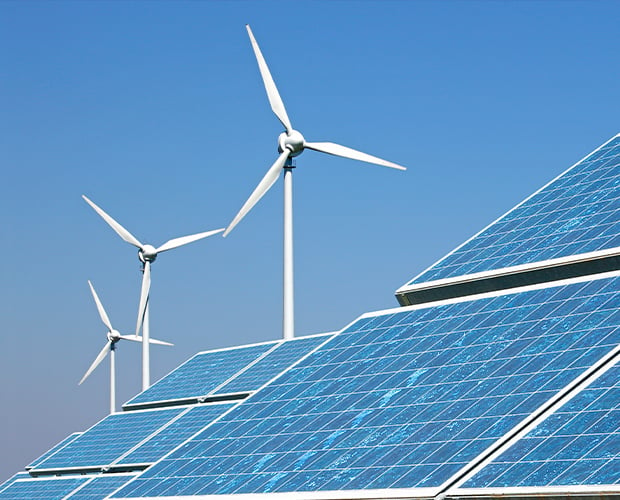
How the SPAC Frenzy Is Conquering the Clean Energy World
Transactions involving a Special Purpose Acquisition Company (SPAC) accounted for more than 50% of new publicly listed US companies in 2020. Described as the new way to go public, SPAC transactions have proven to be an effective way to raise capital—and “green SPACs” are becoming increasingly popular.

The Middle East: An Oasis of Green Finance
The promotion of green finance and investment in sustainable projects continues to be a key policy of the government of the United Arab Emirates, which traditionally has been the initiator of financing sustainable investments and initiatives but the situation is evolving as the private sector becomes increasingly more involved.

Biden-Harris Administration Actions Boosts EV Opportunities
August 2021 proved to be a busy month for stakeholders in the electric vehicle (EV) sector. Between US President Joseph Biden's August 5 executive order to encourage the development of EVs and $15 billion in funds earmarked for EV support in the Senate-approved infrastructure legislation, the growth outlook for EVs and other zero-emission transportation is strong.

Under New Chairman, FERC Refocuses Its Priorities for Natural Gas Pipeline Projects
In the eight months since Richard Glick took the helm of the Federal Energy Regulatory Commission (FERC), a number of changes to federal regulation of the development of natural gas infrastructure are in the works and several recent orders have showcased diverging positions at the commission.
Issue 1
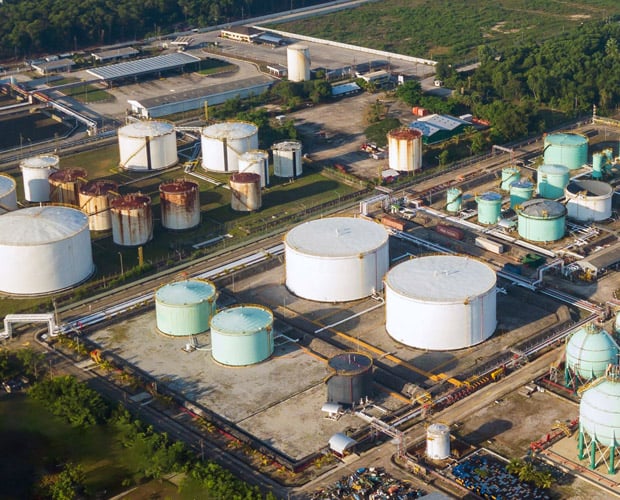
Assumption and Rejection of Midstream Contracts in Bankruptcy
The ability to assume or reject executory contracts is one of the primary tools used by debtors in a Chapter 11 reorganization. Where a debtor has a contract with a third party that is “executory”—meaning that ongoing performance obligations remain for both the debtor and the contract counterparty on the date of the bankruptcy filing—the debtor can choose to either assume or reject the contract under 11 USC § 365.

Considerations for Transporting a Blended Hydrogen Stream in Interstate Natural Gas Pipelines
Hydrogen has been widely touted as a solution to achieve ambitious emissions reduction goals. But in order to unleash hydrogen’s potential as a viable energy source to meet current targets, it needs to be produced in larger quantities than it is today without generating large amounts of undesirable emissions during the production process, and at a cost that is not prohibitive.
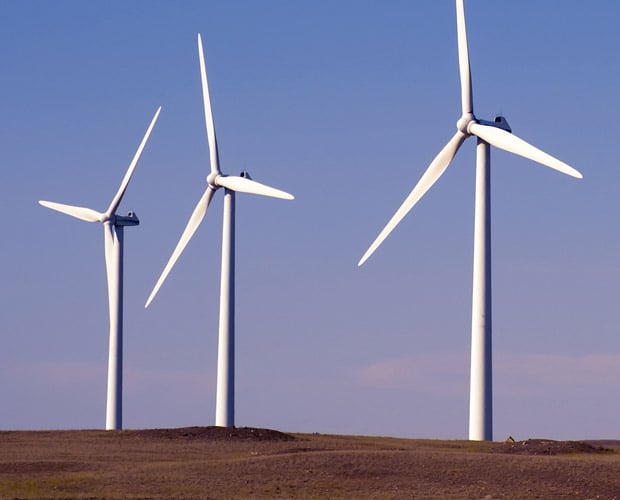
Limit Smartly: Kazakhstan Renewables and Wind Power Generation Equipment Capacity
The Kazakhstan renewables market has been gaining momentum during the last few years. Reasons for such development include (1) government support (including periodic amendments to industry laws and regulations to address renewables market concerns/problems), (2) social responsibilities of power-producing companies that use conventional energy sources, and (3) investors’ interest in renewables.

Green Finance: Regulatory Regime and Key Trends in the EMEA Region
In this article, we provide a high-level overview of the regulatory regime and key trends in green finance in the Europe, Middle East, and Africa (EMEA) region. This Part 1 addresses the European Union (EU), the United Kingdom, Russia, and Kazakhstan; we will continue with other key jurisdictions in Part 2 in a future issue.

Are Investment Tax Credit Changes in Store for Energy Storage?
The US energy storage industry is experiencing rapid growth, with approximately 3.5 gigawatt hours (GWh) of energy storage installed in 2020, which is greater than the aggregate 3.1 GWh of energy storage installed from 2013 through 2019. In 2021, the annual deployment of energy storage in the United States is expected to reach nearly 4 GW as a result of large-utility scale procurements, and this number is expected to grow to nearly 7 GW by 2025.

What Does Virginia’s New Data Privacy Law Mean for Energy Companies?
Virginia became the second state in the United States, after California, to pass a comprehensive data privacy law when the Virginia Consumer Data Protection Act (CDPA) passed both houses of the state legislature in February with overwhelming bipartisan support and was promptly signed into law by Governor Ralph Northam on March 2, 2021. The new Virginia requirements arrive at a time when cyber events targeting energy industry participants are on the rise. In particular, the recent ransomware attack on an interstate fuel pipeline serves as a reminder that energy companies are valuable targets due to the critical nature of the services they provide.

FERC Reaffirms Commitment to Aggressively Investigate and Penalize Fraud and Manipulation
Since January 2021, Federal Energy Regulatory Commission (FERC or the Commission) regulated market participants and practitioners alike have anticipated how FERC may approach its enforcement mission under the stewardship of Chairman Richard Glick following his appointment as chair by US President Joseph Biden.